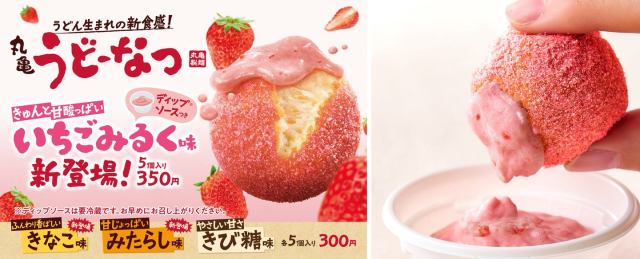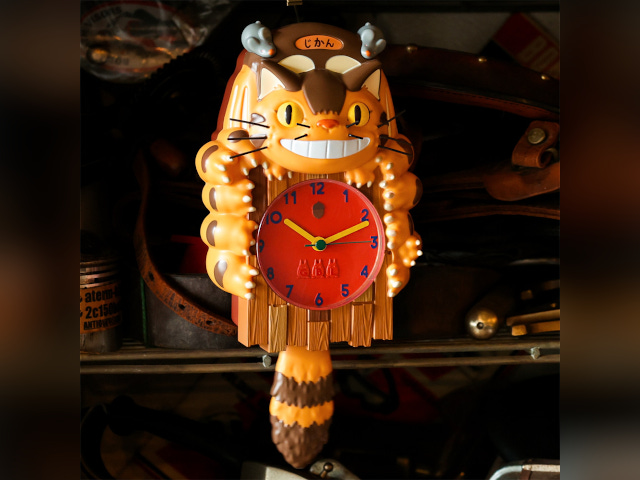The pros and cons of Starbucks Japan’s new reusable straws
![]()
Convenient design or more of a hassle than they’re worth?
Just the other day, we heard Starbucks was finally getting in on the reusable straw trend in Japan with a new product called “My Straw“.
This came as welcome news to a lot of environmentally conscious customers in Japan, including our very own Frappuccino expert K. Masami, who was so keen to try them out she purchased one as soon as they were released on the morning of 17 March.
▼ The silicone straw comes in a set that includes its very own cleaning brush (dubbed a “care brush”) and silicone case for 900 yen (US$8.24)
![]()
According to the packaging, the straw and its silicone case can withstand temperatures from minus 20 degrees Celsius (minus four degrees Fahrenheit) through to 120 degrees Celsius (248 degrees Fahrenheit).
![]()
Available in two colourways–yellow x green and pink x orange–Masami chose to purchase the pink x orange variety, and when she pulled it out of its package, she was immediately impressed by the feel of it in her hand.
▼ The straw’s smooth, thick shape makes it perfectly suited to drinks with plump ingredients, like Frappuccinos.
![]()
Starbucks had just released its new Banana ‘N’ Almond Milk Frappuccino that very same day, so Masami immediately put the reusable straw to work, popping it into the thick liquid, which contained masses of banana pulp.
▼ A beautifully thicc straw for a beautifully thicc Frappuccino.
![]()
Putting her lips to the straw, Masami sucked in deep and was surprised to find it took very little effort to deliver all the different elements of the drink into her mouth.
While it worked well as a straw, Masami noticed it wasn’t that great as a stirrer, as the flexible body wasn’t firm enough to adequately mix the drink.
![]()
After polishing off her beverage, Masami was ready to give the straw a big thumbs up, but that’s when she found herself in a bit of a quandary.
▼ “Ummm…what do I do with the straw now?”
![]()
As she looked around furtively and wondered what the correct etiquette might be here, she licked the remnants off the outside of the straw and wiped it with a serviette.
![]()
If she’d found herself in this situation pre-pandemic, Masami probably would’ve asked the staff behind the counter to quickly rinse out the straw, but that wasn’t an option now as coronavirus countermeasures were in place, prohibiting the handling of customer items.
▼ So, after giving it some thought, Masami headed off to the restroom and gave the straw a rinse in the sink.
![]()
As she was cleaning the inside of the straw, she started to get a little anxious because she couldn’t see inside the straw to find out if she’d washed it adequately.
![]()
And then she encountered another problem…
▼ “Ummm…where should I store the care brush?”
![]()
▼ Is it correct to put it inside the straw and then put the straw inside the case?
![]()
Masami wasn’t exactly sure what she was doing so she put the brush into the straw, the straw into the case, and then she wished she had some detergent on hand to get rid of the creamy residue that had no doubt built up inside the straw.
▼ It’s important to keep everything clean so your next drink doesn’t taste like off milk.
![]()
After using the reusable straw for the first time, Masami found it came with a variety of pros and cons:
【Pros】
- Great for the environment
- Can be used repeatedly
- Can be used by people of all ages, including children, due to the softness of the straw
【Cons】
- Must be washed immediately after use
- No good spot to store the care brush
- The silicone material marks easily and picks up dust
Speaking honestly, Masami says she probably won’t use this straw again when drinking inside Starbucks, unfortunately, due to the inconvenience involved in trying to keep it clean after using it. She’ll definitely use it when ordering drinks to take home, though, and she does have an idea for how Starbucks can cut down on the amount of plastic straws being used at their stores.
▼ “I think they should introduce edible straws–they’re the best alternative to plastic straws.”
![]()
Well, Masami certainly does have a point. Given that the straws are sold in individual packages that include plastic, they’re not entirely plastic-free. And while they’re long-lasting, there’ll inevitably come a day when the reusable straw will have to be disposed of in some way.
Edible straws could eliminate these problems, especially if they’re made on the premises or sold in bulk boxes to cut down on packaging. Plus, the consumer won’t have to do a lot of work in cleaning and storing the straws, as they’ll have the pleasure of simply eating them instead.
And seeing as Starbucks already brought out a Frappuccino with its own edible straw back in 2019, it shouldn’t be that difficult for them to reintroduce them as a regular item. So if you’re reading this, Starbucks–do us all a favour and bring back the edible straw!
Source, images: Starbucks Japan
● Want to hear about SoraNews24’s latest articles as soon as they’re published? Follow us on Facebook and Twitter!
Credit:




0 comments: